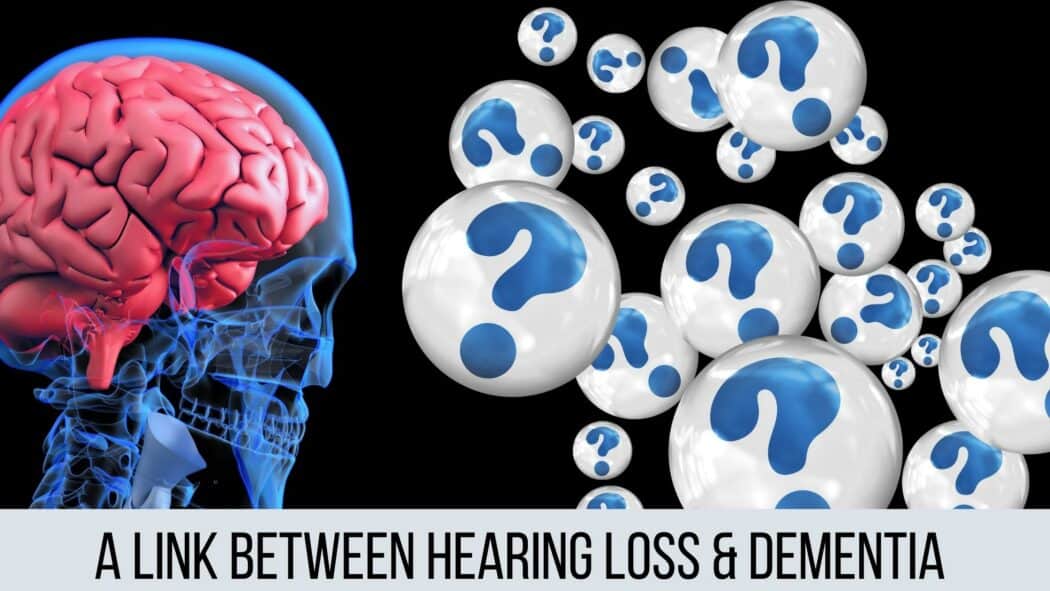Hearing loss affects some 48 million Americans, about 14–15% of the population. Despite how common it is, hearing loss remains sorely undertreated. Only about one out of five people who need hearing aids are currently wearing them.
Until recently, hearing loss has been thought of as an unfortunate but relatively benign part of getting older. However, new research is revealing that hearing loss may not be an inevitable part of aging, nor is it benign. Hearing loss tends to set off a cascade of negative health outcomes, most of which are avoidable with early intervention and treatment with hearing aids or other measures.
Hearing Loss is the #1 Modifiable Risk Factor
The World Health Organization (WHO) has listed hearing loss as the #1 modifiable risk factor (out of 12) in determining whether a person develops Alzheimer’s disease. This is thanks to ongoing research by Dr. Frank Lin and others who study the effects of hearing loss on cognition. This has been difficult to study because it can be hard to determine what is simply not heard due to hearing loss, and what is forgotten or misunderstood due to cognitive processes.
Lin tracks people’s cognitive abilities over time, measuring concentration, memory, and planning skills. His study sample sizes are huge. One study involved 2,000 participants, another 639. With sample sizes this large, it is easier to accept correlation rather than coincidence.
What he has found is that mild hearing loss puts a person at double the risk for cognitive decline and dementia as a “normal”-hearing person. As the severity of hearing loss increases, so does the risk of dementia. For those with moderate hearing loss, the risk is triple. For severe hearing loss, the risk is five-fold.
He stresses that even a quintuple risk is not a guarantee of getting dementia. If your risk is otherwise extremely low, then even five times that risk might still be very low. Say you are at a 0.2% risk of developing dementia. With severe hearing loss, your risk increases to only 1%.
Can Hearing Aids Help?
While it is not yet 100% clear that hearing aids can help to prevent these increased risks, it seems very likely. Hearing aids are about increasing the amount of information that reaches the brain, and it does seem that this lack of stimulus is at least partly responsible for the onset of Alzheimer’s.
A study done in Paris showed that patients who were fitted with cochlear implants showed cognitive improvement over a year. While the study size was not huge (94 people), these results are promising. Dr. P. Murali Doraiswamy at Duke University noted that, although the study results may not be 100% reliable, the outcome for patients was more than double what current drugs for treating Alzheimer’s can achieve. That alone warrants a lot of further research, and a push toward more treatment for hearing loss.
Why Does Hearing Loss Increase the Risk of Dementia?
While no one knows the answer to this question conclusively, there are four possibilities that researchers are contemplating.
- Common Physiological Pathway – It could be that something like an underlying cardiovascular condition may contribute to both hearing loss and dementia. This would mean that hearing loss itself was not responsible for the increased risk of dementia, but just another sign that something else could cause it. This is unlikely based on the way Frank Lin’s studies have been done, which take this into account and arrive at their conclusions all the same.
- Cognitive Load – Hearing loss makes our brain work a lot harder to understand the world of sound. We end up doing a lot of guesswork and double-checking. This is definitely fatiguing but may also reduce the brain’s resilience over time as so many parts of the brain are enlisted simply to understand speech.
- Brain Atrophy – After years of hearing loss, the part of the brain where sound is interpreted can atrophy. We don’t use this part of our brain as much when our ears aren’t sending information to it, so the brain sends its energy resources elsewhere. The gray matter starts to dissipate in the auditory center. It may be possible to regrow this area of the brain once hearing aids start to be worn, and it may be that allowing it to atrophy is a contributing factor in the development of Alzheimer’s.
- Social Isolation – This seems very likely to be a part of the picture. When we can’t hear, we spend less time with people. Engaging with others is one of the most stimulating things we can do with our brains. If we spend too much time alone, our brains start to miss out on the information they get in the presence of other people.
If you or a loved one may be having hearing issues, don’t wait for medical research to become more conclusive! Do what you can to protect your brain today and schedule an appointment for a hearing test!

